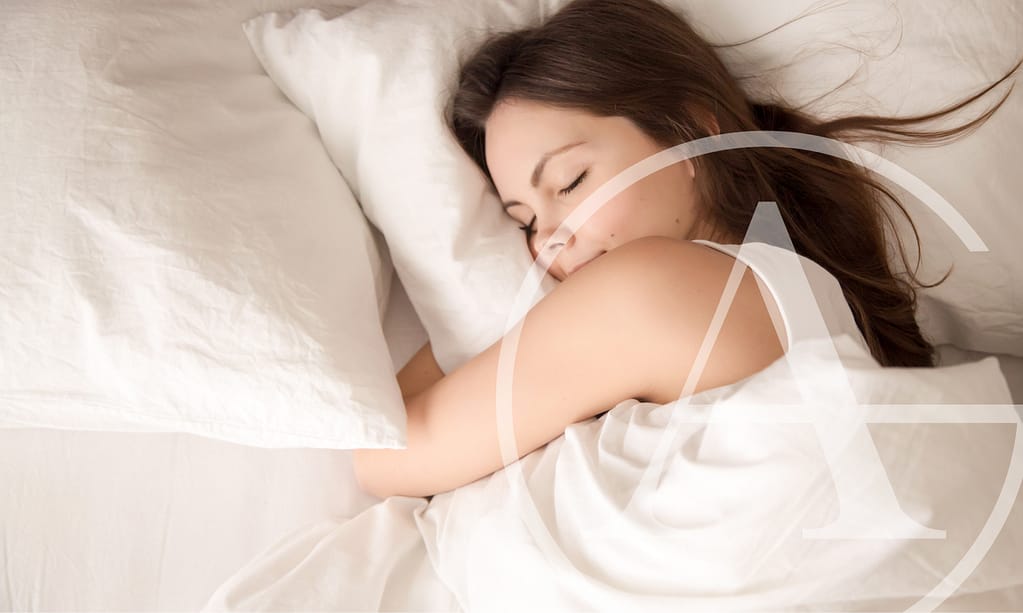Breathing Deep, Sleeping Well: Ease Anxiety by Treating Your Sleep Apnea

The Impact of Sleep Apnea on Anxiety
The Anxiety & Depression Association of America reports that disorders affect 19.1% of U.S. adults annually, making them the most common mental health condition nationwide. While the causes of anxiety are multifaceted, the consequences are truly concerning. One often-overlooked factor contributing to anxiety is sleep apnea, which the National Library of Medicine estimates 26% of Americans between ages 30 and 70 have.
So what is the potential link between these two conditions? And can addressing sleep apnea relieve anxiety symptoms and vice versa?
Sleep apnea, characterized by interrupted breathing during sleep, can significantly contribute to anxiety symptoms and so much more. When a person experiences apnea or hypopnea (shallow breathing), they may wake up due to a drop in oxygen levels, feeling like they are choking or suffocating. This sudden waking can heighten stress levels and intensify their sense of anxiety.
Moreover, sleep apnea has been associated with other mental health conditions, including depression, post-traumatic stress disorder, and bipolar disorder. This growing body of evidence strongly suggests a connection between sleep apnea and anxiety, with each condition exacerbating the other.
Research reinforces this connection between anxiety and sleep apnea. One study found that people with obstructive sleep apnea (OSA) were more likely to experience anxiety symptoms, especially when OSA was severe. The second study highlighted a higher incidence of anxiety and depression in those with sleep apnea, particularly among female patients.
Recognizing this connection is crucial. Addressing sleep apnea through proper treatment improves physical health and plays a vital role in managing anxiety.
Common Treatments for Sleep Apnea and Their Anxiety-Relieving Benefits
When it comes to tackling your sleep apnea and its anxiety-inducing effects, several treatments are available. These include CPAP therapy, the PX3 mouth guard, and neuromuscular dentistry.
CPAP Therapy
Continuous positive airway pressure (CPAP) therapy is one of the most recognized treatments for sleep apnea. This method provides a continuous stream of pressurized air as you sleep to hold the airway open. You’ll wear a mask that fits securely over your mouth or nose for effortless breathing and uninterrupted slumber.
CPAP therapy boasts an impressive success rate, with most patients seeing improvement in symptoms. By keeping airways open and ensuring a steady flow of oxygen, CPAP therapy gives sleep apnea sufferers a chance at a better night’s sleep.
PX3 Mouth Guard
While CPAP therapy is a popular treatment for sleep apnea, studies reveal that many patients discontinue use due to the cumbersome and uncomfortable nature of the machine and mask. In such cases, patients often turn to their dentists for a solution, which brings us to the PX3 mouth guard.
Primarily known for safeguarding teeth during sports, the PX3 mouth guard offers an ingenious approach. It stabilizes the jaw by locking it in a natural, comfortable position based on your anatomy.
This jaw stability serves two purposes. First, it provides optimal protection against impact, preventing teeth and jaw displacement during movement. Second, PX3’s unique design ensures that your airway remains unobstructed, allowing you to breathe freely as you sleep. This comfortable alternative to CPAP is a game-changer for patients seeking a hassle-free sleep apnea solution.
Neuromuscular Dentistry
Neuromuscular dentistry is a comprehensive approach that tackles sleep apnea and its associated challenges. This practice effectively addresses sleep-related concerns, TMJ dysfunction, and teeth grinding by alleviating stress on the jaw joint.
At its core, neuromuscular dentistry focuses on achieving alignment between the jaw and its surrounding muscles to promote proper breathing and uninterrupted sleep. With the jaw in its optimal position, the airways remain unobstructed during sleep, enhancing the quality of rest.
The benefits of neuromuscular dentistry extend beyond improved sleep. It can help significantly reduce anxiety symptoms by alleviating sleep apnea and its related issues. Better sleep fosters better mental well-being, making the neuromuscular dentistry’s approach a promising avenue for patients seeking comprehensive relief from sleep apnea and its detrimental impacts on their mental health.
Choosing the Right Treatment Plan
When addressing sleep apnea and anxiety, a personalized treatment plan is necessary. It’s essential to consult your primary physician or a sleep specialist for an accurate diagnosis, as only a doctor can confirm the presence of sleep apnea. However, your dentist can play a vital role in helping to treat this condition once you have a diagnosis.
And the truth is that the severity of sleep apnea and anxiety can vary widely among individuals. Treatment should be tailored to your specific needs and the extent of your condition. In addition to professional treatment, consider making lifestyle changes to complement your efforts to alleviate sleep apnea and anxiety. These changes include:
- Weight reduction: Losing excess weight can reduce sleep apnea severity.
- Balanced diet: Eating healthily can aid in weight loss, improve overall well-being, and improve sleep quality.
- Smoking cessation: Smoking causes airway inflammation, which in turn narrows the upper airways and contributes to their obstruction.
- Stress reduction: Identify and manage stressors to promote better sleep and reduce anxiety.
Collaboration with doctors and dentists is your key to finding the right treatment plan and finally achieving relief from OSA.
Not sleeping well? A PX3 mouth guard could be the solution.
Prioritizing sleep health is crucial. So when you aren’t getting a good night’s rest night after night, it’s time to address your sleep apnea. As you navigate treatment options, remember that your dentist can play a pivotal role by creating a custom PX3 mouth guard.
To find the best dentist in Dallas, Texas, for sleep apnea treatment, contact Dallas Cosmetic Dental. Don’t let sleep apnea hinder your well-being; seek professional guidance and embrace healthier sleep and reduced anxiety. Schedule your appointment with us today.